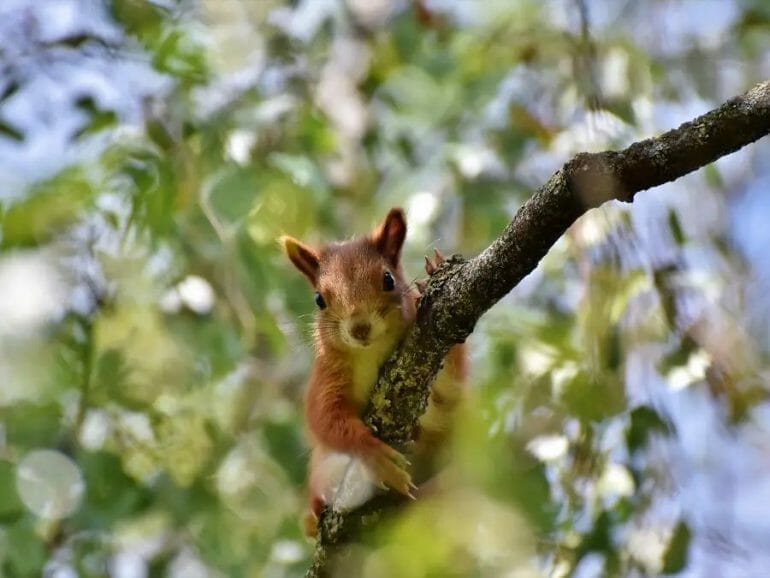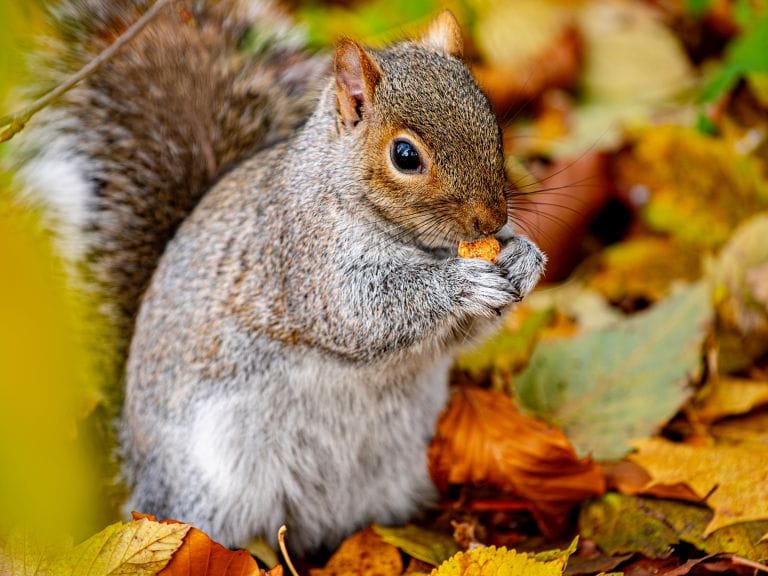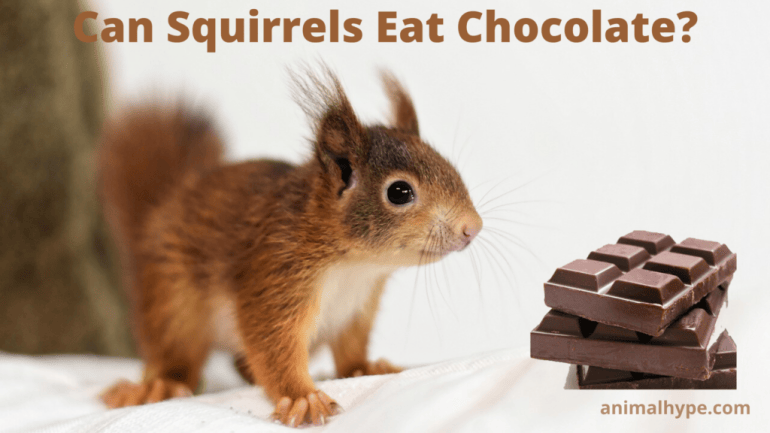Yes, squirrels can eat tortilla chips as a snack. However, it is important to note that tortilla chips should not be a regular part of their diet. While squirrels can consume small amounts of human food, their primary source of nutrition should come from their natural diet of nuts, fruits, and vegetables.
Tortilla chips are high in salt and unhealthy fats, which can be harmful to squirrels if consumed in large quantities. Additionally, the crunchy texture of the chips may pose a choking hazard for these small animals. It is best to provide squirrels with squirrel-specific food or natural snacks that are suitable for their dietary needs.

Potential Risks and Dangers of Feeding Tortilla Chips to Squirrels
While it may be tempting to share your favorite snack with the adorable squirrels in your backyard, feeding them tortilla chips can actually pose several risks and dangers to these furry creatures. It’s important to understand the potential negative effects of feeding improper food to wildlife, including squirrels, to ensure their well-being and safety.
1. Nutritional Imbalance
Tortilla chips are typically high in fat, sodium, and carbohydrates, which are not part of a squirrel’s natural diet. Squirrels, primarily herbivores, rely on nuts, fruits, seeds, and vegetation for their nutrition. Feeding them tortilla chips can lead to an imbalance in their diet, lacking essential nutrients they need for proper growth and development.
2. Digestive Issues
Squirrels have a sensitive digestive system that is not designed to process processed and high-fat foods like tortilla chips. The excessive consumption of these chips can lead to digestive problems, including diarrhea, constipation, and bloating. This can cause discomfort and potentially harm the squirrel’s overall health.
3. Choking Hazards
Tortilla chips are often crunchy and brittle, making them a choking hazard for small animals like squirrels. Their small size and the potential sharp edges of the broken chips can pose a serious risk, leading to respiratory distress or even death if lodged in their throat.
4. Dental Issues
Squirrels’ teeth continually grow throughout their lives, and they rely on hard foods like nuts to wear them down naturally. Feeding them tortilla chips, which are not a natural part of their diet, can contribute to dental problems and malocclusion. This can cause pain, difficulty eating, and overall health issues for the squirrels.
5. Attracting Predators
Feeding squirrels human food like tortilla chips can not only harm the squirrels themselves but also attract predators to your backyard. When squirrels become accustomed to being fed by humans, they lose their natural fear of predators and may become more vulnerable to attacks from animals like cats, dogs, or birds of prey.
6. Environmental Impact
Feeding squirrels tortilla chips or any other human food can disrupt the natural balance of their ecosystem. It can lead to increased competition for food among squirrels, potentially driving away native species who rely on similar food sources. Additionally, discarded food items can attract pests and rodents, further disrupting the local environment.
In summary, while it may be tempting to share your tortilla chips with squirrels, it is crucial to prioritize their health and well-being. Stick to their natural diet and provide them with appropriate food options to ensure they remain healthy and safe. By respecting their natural habits and needs, you can enjoy watching these charming creatures thrive in their natural environment without causing harm.

Alternatives to Tortilla Chips for Squirrels’ Diet
Squirrels are well-known for their love of nuts and seeds, but they are also opportunistic eaters and can enjoy a variety of foods. While tortilla chips might seem like a tempting snack to offer to squirrels, it’s important to remember that these salty and processed snacks are not suitable for their diet. Fortunately, there are several healthier alternatives that you can provide to squirrels to ensure they have a balanced and nutritious diet.
1. Nuts and Seeds
Nuts and seeds are a staple in a squirrel’s natural diet. Instead of tortilla chips, offer them unsalted and unseasoned nuts such as almonds, walnuts, pecans, or hazelnuts. You can also provide them with sunflower seeds, pumpkin seeds, or other birdseed mixes that are free from salt or additives. These options are high in healthy fats and proteins, which are essential for their overall well-being.
2. Fresh Fruits
Squirrels enjoy the sweetness and juiciness of various fruits. Offering them fresh fruits like apples, pears, strawberries, or blueberries can be a great alternative to tortilla chips. However, it’s important to remove any seeds or pits that may be harmful to squirrels. Cut the fruits into small, squirrel-friendly pieces and place them in a shallow dish or scatter them in their feeding area.
3. Vegetables
Vegetables can also be a healthy addition to a squirrel’s diet. Opt for baby carrots, broccoli florets, squash, or green beans. These fresh and natural options provide valuable vitamins and minerals to squirrels without the added sodium and unhealthy fats found in tortilla chips. It’s best to wash the vegetables thoroughly and cut them into small, manageable pieces.
4. Whole Grains
Instead of offering tortilla chips, consider providing squirrels with whole grains. Rolled oats, cooked brown rice, or whole wheat bread can be enticing and nutritious options for them. These whole grains are a good source of fiber and energy to support their active lifestyle. Ensure that the grains are plain and not flavored or seasoned.
5. Natural Yogurt or Cottage Cheese
Squirrels can also benefit from small amounts of dairy products like natural yogurt or cottage cheese. These options provide calcium and protein, which are essential for their bone and muscle health. Offer them a small dollop of plain, unsweetened yogurt or a scoop of cottage cheese as an occasional treat.
6. Water
While not a food alternative, it’s essential to provide squirrels with a fresh and clean water source. Place a shallow dish or small container of water near their feeding area, ensuring it is easily accessible for them to drink from. Water is vital for their hydration, especially during hot summer months.
In summary, when it comes to feeding squirrels, it’s important to offer them a well-balanced diet. Avoid feeding them tortilla chips or any processed snacks that can be harmful to their health. Instead, opt for natural and nutritious alternatives like nuts, seeds, fresh fruits, vegetables, whole grains, and occasional dairy products. Providing them with a varied diet will help ensure their overall well-being and keep them happy and healthy.

Squirrel-friendly snacks: Safe and nutritious options for feeding squirrels
Squirrels are cute and playful creatures that can often be found scampering around in parks and backyards. If you enjoy watching these furry friends and want to provide them with some extra nourishment, it’s important to choose snacks that are safe and nutritious for them. In this section, we’ll explore some squirrel-friendly snacks that you can offer to these delightful creatures.
1. Nuts and seeds
Nuts and seeds are a natural choice when it comes to feeding squirrels. They are a great source of protein, healthy fats, and essential nutrients. Some popular options include:
- Acorns
- Almonds
- Walnuts
- Hazelnuts
- Peanuts (unsalted)
- Sunflower seeds
Make sure to provide these treats in moderation, as overconsumption can lead to health issues. It’s also important to avoid offering salted nuts, as excessive sodium can be harmful to squirrels.
2. Fruits and vegetables
Offering fruits and vegetables can be a refreshing and nutritious treat for squirrels. Some squirrel-friendly options include:
- Apples
- Carrots
- Broccoli
- Berries (strawberries, blueberries, raspberries)
- Spinach
- Pumpkin
Ensure that the fruits and vegetables are fresh and free from any pesticides or harmful chemicals. Wash them thoroughly before serving to remove any dirt or residue.
3. Whole grains
Whole grains can provide squirrels with a good source of carbohydrates and fiber. Consider offering the following options:
- Uncooked oats
- Brown rice
- Quinoa
- Whole wheat bread (in small pieces)
These snacks can be offered in small quantities, as squirrels primarily rely on nuts and seeds for their diet.
4. Nut butter
If you want to add a twist to the squirrel’s snacking experience, you can offer them a small amount of nut butter. Peanut butter or almond butter can be spread on a tree trunk or a designated feeding station. This allows squirrels to enjoy a tasty treat while also providing them with mental stimulation as they forage for the butter.
5. Water
Lastly, don’t forget to provide squirrels with a freshwater source. Place a shallow dish of water in your yard or garden, ensuring it is cleaned and refilled regularly. Squirrels need to stay hydrated, especially during hot summer months.
In summary, when it comes to feeding squirrels, it’s essential to choose snacks that are safe, nutritious, and appropriate for their dietary needs. Nuts and seeds, fruits and vegetables, whole grains, nut butter, and water are all options you can consider. Remember to offer these snacks in moderation, ensuring a balanced diet for these adorable creatures.
Tips for Attracting and Feeding Squirrels in Your Backyard Safely
If you enjoy watching wildlife and want to attract some adorable furry friends to your backyard, squirrels are a great choice. Squirrels are known for their playful behavior and acrobatic skills, making them a delight to observe. Whether you’re a nature enthusiast or simply want to bring some life to your outdoor space, here are some tips for attracting and feeding squirrels in your backyard safely.
1. Provide a Squirrel-Friendly Environment
Squirrels are arboreal creatures, meaning they spend most of their time in trees. To attract squirrels to your backyard, create an environment that mimics their natural habitat. Plant a variety of trees, especially those that produce nuts or seeds that squirrels love, such as oak or hickory trees. Consider adding shrubs and bushes for additional cover and shelter.
2. Install Squirrel Feeders
Squirrel feeders are a great way to entice squirrels to visit your backyard. Choose a feeder that is specifically designed for squirrels, with features such as a sturdy construction and openings that accommodate their size. Fill the feeder with a mix of nuts, seeds, and dried fruits that squirrels enjoy. Place the feeder in a visible, accessible location away from any potential predators.
3. Offer a Variety of Food
While squirrels love nuts, it’s important to provide a balanced diet for their overall health. In addition to nuts, offer a variety of fruits, vegetables, and grains. Some popular food options for squirrels include apples, corn, sunflower seeds, and peanuts. Make sure to provide fresh and clean water for them to drink as well.
4. Keep Feeders Clean and Hygienic
To prevent the spread of diseases and maintain a healthy feeding environment, it’s crucial to keep your squirrel feeders clean and hygienic. Regularly remove any leftover food and clean the feeders with warm soapy water. Avoid using harsh chemicals or detergents that could be harmful to the squirrels.
5. Avoid Feeding Squirrels Human Food
While it may be tempting to share your leftover snacks with the squirrels, it’s best to stick to their natural diet. Feeding them human food like chips or sweets can lead to nutritional imbalances and health issues. Stick to providing them with squirrel-friendly food options to ensure their well-being.
6. Be Patient and Observant
Building a relationship with squirrels takes time and patience. It may take a while for the squirrels to discover your feeders and feel comfortable visiting your backyard. Be patient and observant, and soon enough, you’ll be rewarded with their presence. Take the time to watch and enjoy their playful antics from a safe distance.
7. Consider Building Squirrel Nesting Boxes
If you want to take your squirrel-friendly backyard to the next level, consider building nesting boxes. Squirrels use nesting boxes as shelter and a safe place to raise their young. Place the nesting boxes high in the trees, where squirrels can easily access them.
8. Watch Out for Potential Hazards
While attracting and feeding squirrels can be enjoyable, it’s important to be mindful of potential hazards. Avoid using pesticides or chemicals in your backyard that could harm squirrels or contaminate their food. Keep an eye out for any predators in the area that may pose a threat to the squirrels.
Attracting and feeding squirrels in your backyard can be a rewarding experience. By creating a squirrel-friendly environment, providing nutritious food, and ensuring their safety, you can enjoy the presence of these fascinating creatures. Remember to be patient, observant, and mindful of their needs to establish a harmonious relationship with the squirrels that visit your backyard.
Can squirrels eat tortilla chips?
No, squirrels should not eat tortilla chips. While squirrels are omnivorous and can eat a variety of foods, tortilla chips are processed snacks that contain high levels of salt and unhealthy additives. Feeding squirrels such food can be harmful to their health.
Conclusion
While squirrels may be curious creatures and willing to try various foods, it is not recommended to feed them tortilla chips. Squirrels have specific dietary needs, and processed human snacks like tortilla chips do not provide the necessary nutrients for their well-being.
Additionally, the high salt content and artificial flavors in tortilla chips can be harmful to squirrels, potentially leading to health issues. It is best to stick to their natural diet, which includes nuts, seeds, fruits, and vegetables.
By respecting their natural dietary requirements, we can help to ensure the health and happiness of these adorable creatures in our surroundings.

